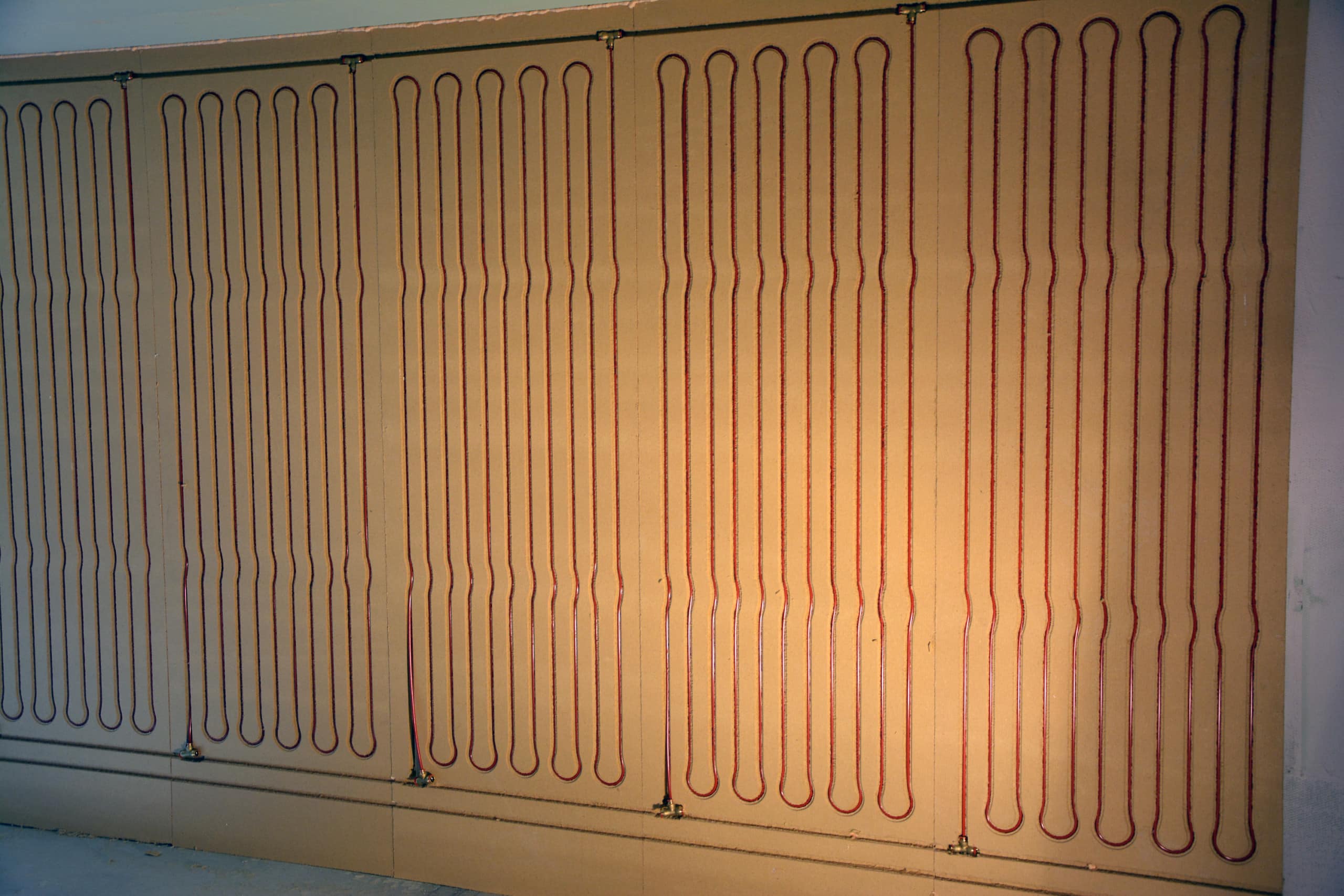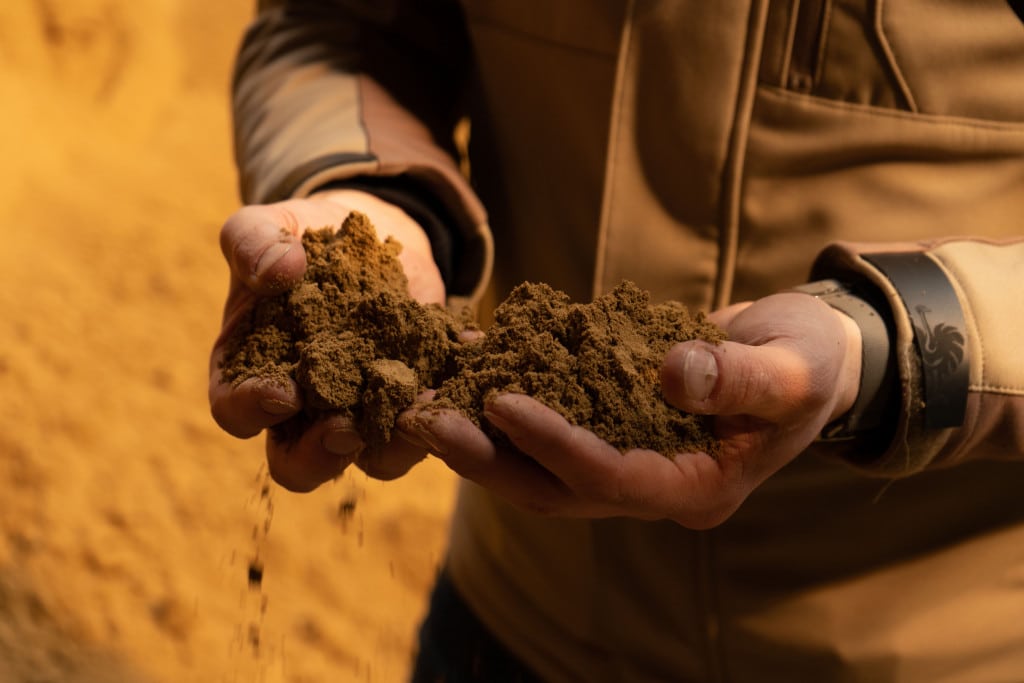The building material clay
Good indoor climate
Clay building materials have the property of absorbing water vapor from the room air and releasing it again when dry. This is achieved by the large “inner surface” of the clay building materials, which consist of very fine particles. It also has a filtering effect, binding or even neutralizing pollutants and odours. The openness of the surfaces (“diffusion openness”) ensures that the inner structure of the plaster is accessible. The risk of mold growth is eliminated by the open surfaces. Clay building materials counteract the drying out of the respiratory tract and thus reduce the risk of viral infections.
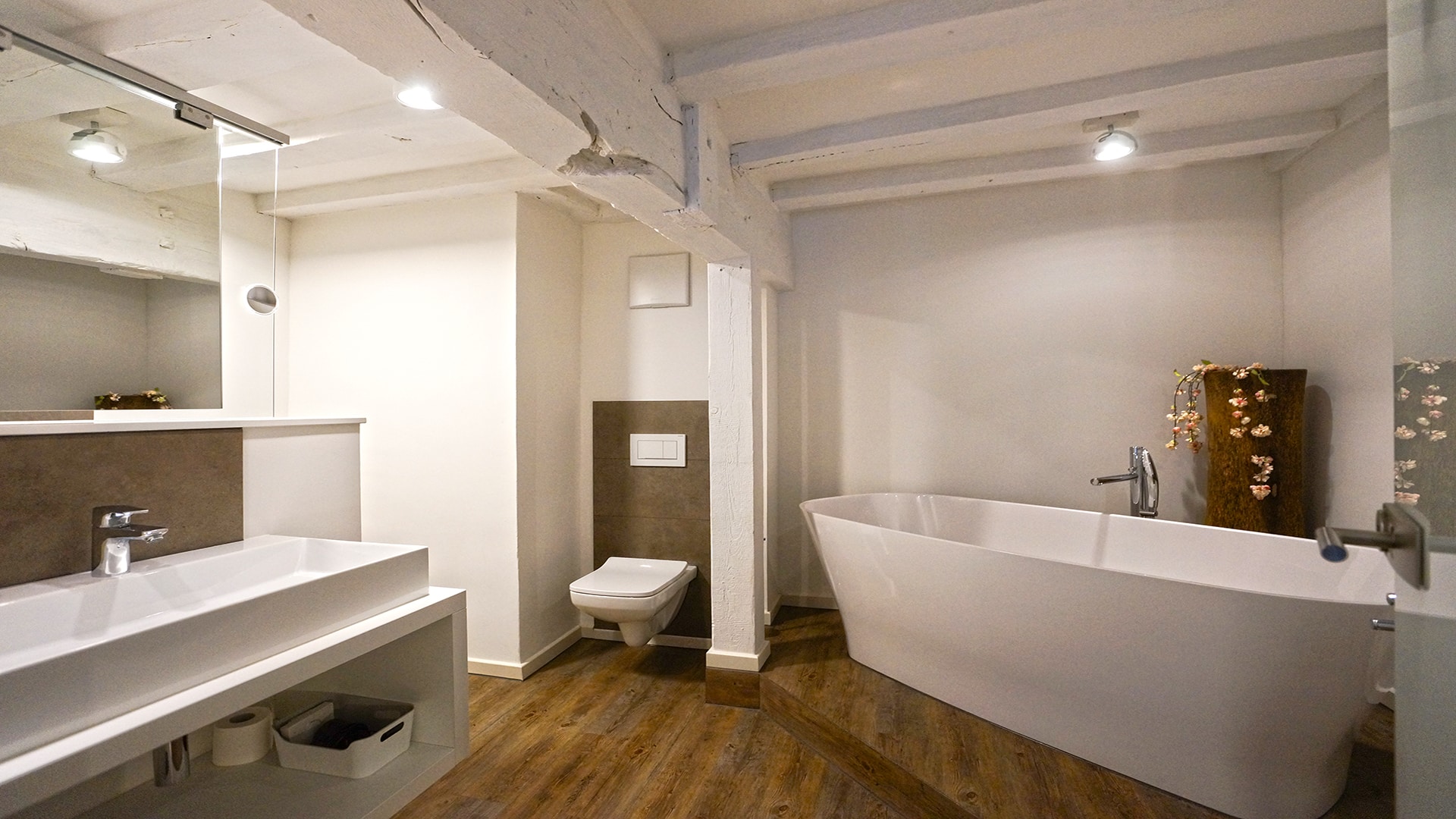
The building material clay
Summer heat insulation
A pleasantly balanced indoor climate at any time of year: heavy clay building materials act as thermal stores, cooling the interior when outside temperatures are high in summer. This aspect has become increasingly important in recent years. Even in winter, storage masses ensure thermal balance and counteract temperature fluctuations. Unlike air conditioning systems, earth building components work according to the “low-tech” principle. Their functionality requires neither energy input nor maintenance costs and has no time limit. Moisture absorption and thermal storage are the two most important properties that make up the famous “clay room climate”.
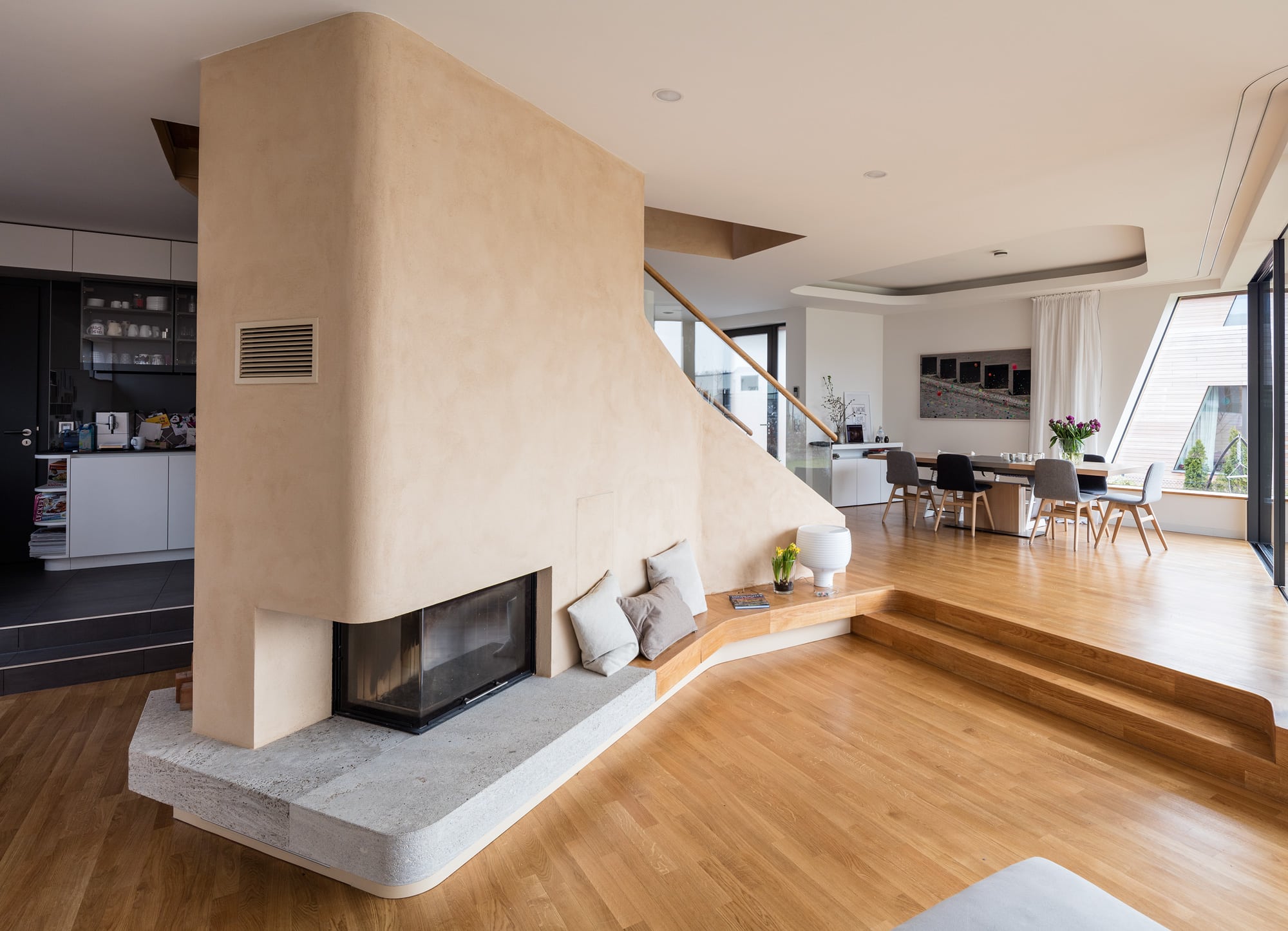
The building material clay
Good acoustics
Acoustics are also crucial for a sense of well-being indoors. Walls and ceilings with low sound insulation allow disturbing noises from neighboring rooms to pass through, while hard surfaces increase the volume within a room. With clay building boards, even simple constructions can be used to create drywalls with very good sound insulation. Depending on the design, the surfaces of clay plasters reflect less noise than hard surfaces such as concrete.
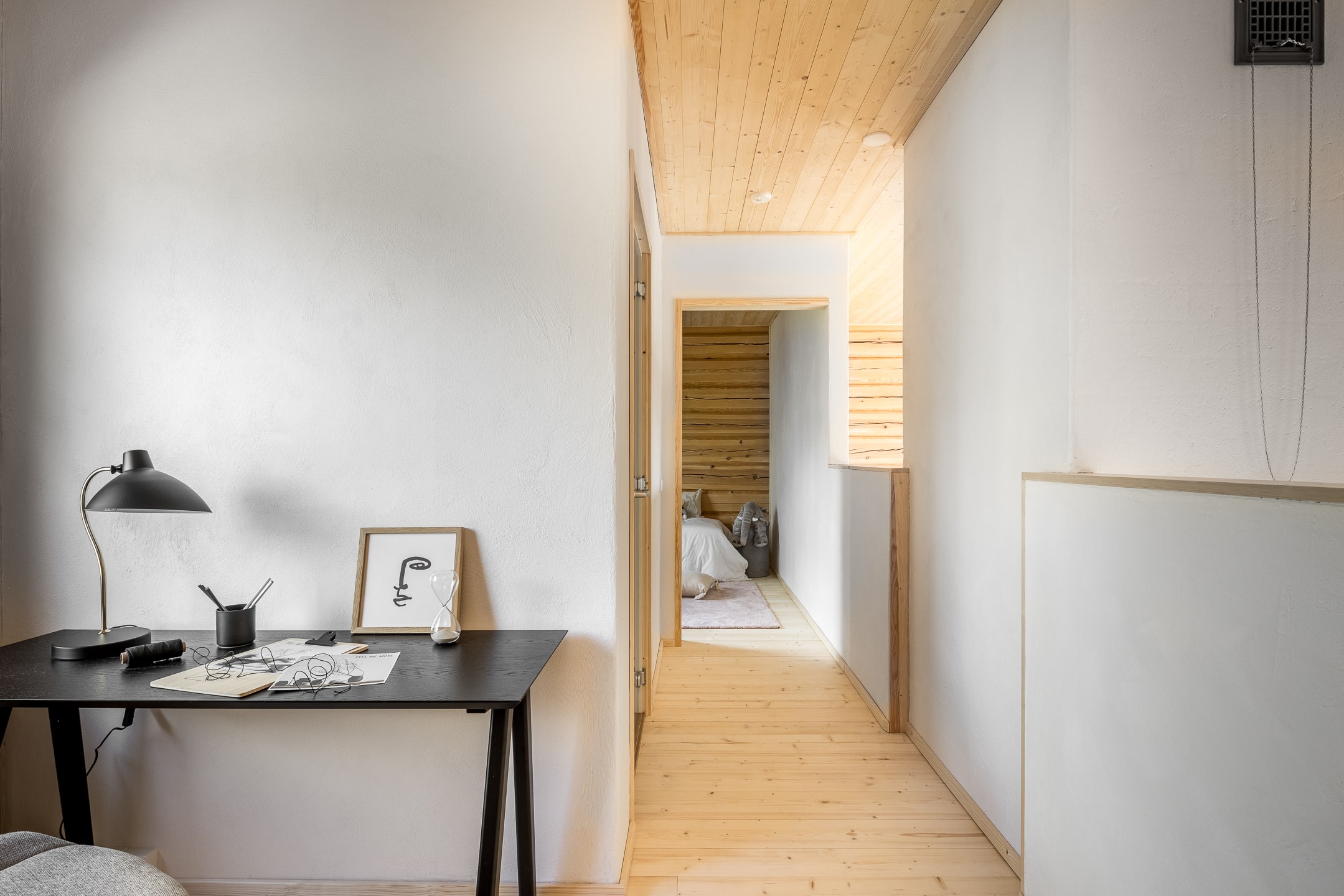
The building material clay
Comfortable temperature control
Wall heating and cooling systems work with a high proportion of radiant heat and thus provide comfortable warmth in winter, while in summer they can simply be switched to cooling. They are the order of the day: In heating mode, they operate with a low flow temperature, i.e. with only moderately heated water. This significantly increases the energy efficiency of heat pumps and in many cases makes this method of heat generation economical. The combination with clay increases the effect. The natural diffusion-open clay plaster surfaces are the perfect heat dissipation medium, both functionally and aesthetically.
